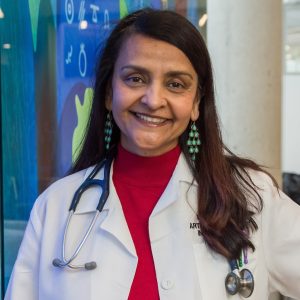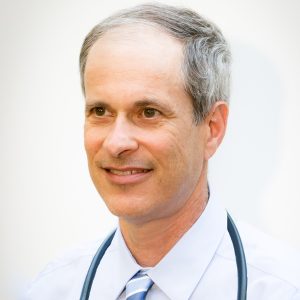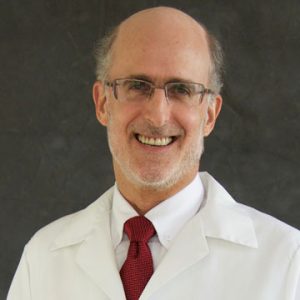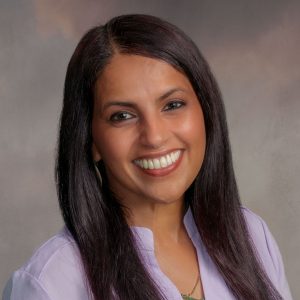
MIU launches Fellowship MS in Integrative Medicine and Ayurveda for Medical Professionals
The MIU College of Integrative Medicine has just launched a new graduate fellowship program for physicians and advanced practice providers that has been developed in collaboration with the University of Arizona Andrew Weil Center for Integrative Medicine and has been provisionally approved by the American Board of Integrative Medicine.
“With this program, MIU plants a flag on the Mount Everest of medical education,” said Scott Herriot, vice president of academic affairs. “This program represents an official endorsement by mainstream medical education of Ayurveda and integrative medicine.”
The program offers a new paradigm for medical practice, a whole person, prevention-oriented healthcare approach without harmful side effects.
The program offers a new paradigm for medical practice, a whole person, prevention-oriented healthcare approach without harmful side effects. It also aids doctors in caring for themselves, vital in a field pervaded by physical burnout and exhaustion.
The fellowship is a two-year, flexible online program requiring 10-12 hours a week and includes a week each year of residential clinical training and experience on the MIU campus.
The Andrew Weil Center for Integrative Medicine has contributed its Foundational Fellowship Curriculum (FFC) to MIU’s MS program, providing state-of-the-art knowledge in all the major domains of integrative medicine recommended by the American Board of Integrative Medicine (ABOIM). The Andrew Weil Center features this collaboration on its website.
Students
Fifteen students have enrolled in the program this fall — eleven medical doctors, three nurse practitioners, and one physician assistant. These participants represent a range of specialties, including internal medicine, family medicine, pediatrics, psychiatry, neurology, and obstetrics/gynecology.
“I am interested in this course to learn tools for permanent healing of chronic illness, and tools for prevention of disease that traditional medicine is not strong at,” says Radhika Jaladi, MD, a specialist in internal medicine in Bridgeton, Missouri.
“I am interested in this course to learn tools for permanent healing of chronic illness, and tools for prevention of disease that traditional medicine is not strong at.”
— Radhika Jaladi, MD
“A healthy lifestyle is the key to health,” says Jahaira Lopez Pastrana, MD, a psychiatry specialist in Philadelphia, Pennsylvania, affiliated with the Thomas Jefferson University Hospital in Philadelphia. “I want to learn Ayurvedic/Integrative approaches to provide care focused on mind and body approaches and continue working on my own wellness. Conventional medicine has its role in the management of diseases, but adding an integrative approach will provide a holistic opportunity not just for treating diseases but achieving well-being.”
Another student, Sonal Bhatia, MD, a physician in North Charleston, South Carolina, associated with the Medical University of South Carolina, says, “My interest in Ayurveda comes from my desire to understand eastern medicine, go back to the roots of why diseases exist, and find solutions for patients that go beyond the ‘pill.’ While medicines are important, creating a balanced and holistic approach to their healing can and will help the entire healthcare ecosystem as we move towards a future of healthy living.“
Director and faculty

The program director is Arti Prasad, MD, FACP, ABOIM. She is also a professor of medicine at the University of Minnesota and the Chief Strategic Development Officer of Hennepin Healthcare, serving the Minneapolis area.
“As a founding member of the American Board of Integrative Medicine and as a practitioner, teacher, and leader in the field of integrative health, I believe this is the first time in the nation that the ancient wisdom of Ayurveda as a whole system of medicine will be highlighted and integrated with modern medicine through this combined fellowship program,” Dr. Prasad said.

The executive director is Charles Elder, MD, MPH, FACP. Dr. Elder has served for 30 years as a primary care internist and the lead physician for the complementary and integrative medicine program at Kaiser Permanente of the Northwest, where he established a referral-based integrative Ayurvedic clinic for Kaiser patients.
“Unlike other degree programs in Ayurveda, this program focuses on training doctors, who are the leaders in our health care system,” Dr. Elder said. “So the fellowship helps to pave the way for Ayurveda to become firmly established within the medical system, and for all of MIU’s degree programs in Ayurveda to ultimately reach the highest levels of success. By achieving recognition through the American Board of Integrative Medicine, and through the collaboration with the University of Arizona, the program raises MIU’s profile and establishes MIU as a premier destination for integrative medicine and Ayurveda training.”

Robert Schneider, MD, FACC, and Dean of the College of Integrative Medicine was instrumental in conceiving, developing, and launching the program.
“For more than 35 years, I have researched, taught, and practiced Integrative Medicine based at MIU, which has been a global leader in bringing the holistic knowledge of Ayurveda to modern healthcare,” Dr. Schneider said. “It’s fulfilling to now offer this opportunity to physicians and health professionals in the US and worldwide. This will be the future of healthcare.”

The assistant director is Sankari Wegman, PhD, an assistant professor in the MIU College of Integrative Medicine.
“Over the last 20 years in my professional practice, I have seen firsthand how Maharishi AyurVeda has transformed the health and well-being of patients,” professor Wegman said. “I am excited to be a part of this program that will equip healthcare practitioners with tools to provide their patients with whole person care from the different modalities of Integrative Medicine, while also placing an emphasis on practitioner self-care.”
